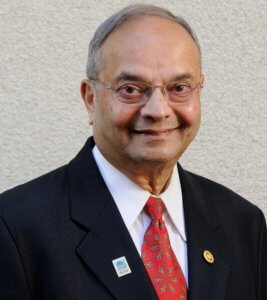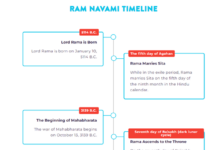Dr. Manu Vora
Member, AICTE NEP 2020 Implementation Plan Strategy Committee
The National Education Policy (NEP) 2020 was approved by the Indian Cabinet last July with a major overhaul since the 1986 Policy. The highly aspirational NEP 2020 was developed under the able leadership of Dr. K. Kasturirangan. With the NEP 2020 at hand, the real challenge begins to implement it successfully in the education domain in India.

In October 2020, a special Committee was chartered by Prof. Anil Sahasrabudhe, Chairman of All India Council for Technical Education (AICTE) to facilitate NEP 2020 Implementation Plan in Higher Education. The Committee members were Prof. Sanjay Dhande, Padma Shri, Chairperson, Prof. PremVrat, Prof. Ashok Shettar, Prof. Rajneesh Arora, Prof. Subhasis Maji, Prof. Archana Mantri, ProfSathans Suhag, Prof. Rajul Asthana, Prof. Mamta Rani Agarwal, and Dr. Manu K. Vora. It was an honor to join the August Group of Eminent Educationists in India. The Committee Members in a virtual mode compiled the booklet towards NEP 2020 implementation.
The AICTE Team of ChairmanProf. Anil Sahasrabudhe, Vice Chairman Prof. M. P. Poonia, Member Secretary Prof. Rajive Kumar and Director Col. B. Venkat did great work to finalize chapter-wise NEP 2020 implementation. The NEP 2020 Implementation Plan addressed nine areas: 1) Multi-Disciplinary and Holistic Education, 2) Equity and Inclusion in Higher Education, 3) Research, Innovation, and Rankings, 4) Global Outreach of Higher Education, 5) Motivated, Energized, and Capable Faculty, 6) Integrated Higher Education System, 7) Governance and Regulation, 8) Promotion of Indian Languages, Arts, and Culture, and 9) Technology Use and Integration. The NEP 2020 Implementation Plan has Short-Term (2021), Medium- Term (2022-2025), and Long-Term (2026-2035) Goals to have the best education System in India by 2035.
The NEP 2020 rollout envisages inculcation of values based on ancient wisdom and setting up of vibrant knowledge society in India. Key Short-Term Goals included Immediate revision of curriculum with assessment tools, UG education can be of 3 or 4 years with multiple exits and re-entry options, Establish Academic Bank of Credits to facilitate transfer of credits, Access, equity, quality, affordability and accountability to all, Promoting the use of mother tongue at all levels of education, and Integration of School and Higher Education. Key Medium-Term Goals focused on Greater mobility of students in India, Integration of vocational education programs into mainstream education in all education institutes, Creating policies and roadmap for implementation in all facets of education including professional, technical, liberal, medical, law, agriculture, etc., and Strong and innovative government initiatives for adult education.
The Long-Term Goals included Transforming HEIs into multi-disciplinary universities, Granting graded autonomy to colleges through a transparent system of graded accreditation, Establishing/ transforming at least one HEI into large multi-disciplinary HEI in or near every District, 4 year B. Ed. degree as a minimum qualification for school teachers, Sanskrit universities will move towards becoming large multi-disciplinary institutions of higher learning, and Department of Sanskrit to be established. Key inputs focused on engaging Alumni and Industry Experts for their input on curricula upgrade, placements, and governance. Engaging all HEI students in Community Service during studies to Give Back to the Society and help in Nation Building as Social Entrepreneurs.
With 35 years of change experience in all sectors, the author recommended training all stakeholders. The author suggested specific Faculty Development Programs (FDPs) for Administration/Leadership onChange Management, U. S. Baldrige Education Performance Excellence Framework for Self-Assessment, and Community Service Importance. For Project Leads, FDP on Project Management, and Risk Management. Finally, a Soft Skills FDP for All Faculties.
The NEP 2020 Implementation is a Transformation Journey, which will require a Laser-Sharp Focus on a War-Time Footing. We need to Empower all Stakeholders by harnessing Expertise, Experience, Knowledge, and Wisdom of Experts for a Successful Journey. We must Provide Relevant Training to All Stakeholders. Insist on creating a Culture of Execution Discipline for NEP 2020 Rollout. There should be zero Political Interference from the Government in implementing the NEP 2020. This policy being not merely transformational for building empowered new India, but if implemented successfully, it would become a role model and beacon for education sector in developing and developed nations.
(Dr. Manu Vora, Chairman & President of Business Excellence, Inc., USA. Contact: manuvora@b-einc.com.)







